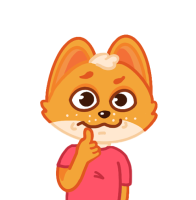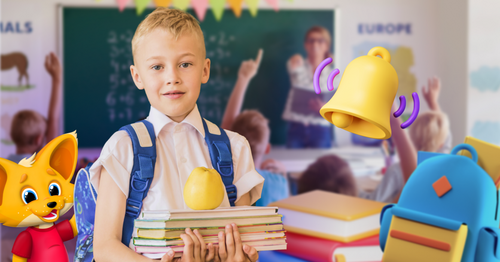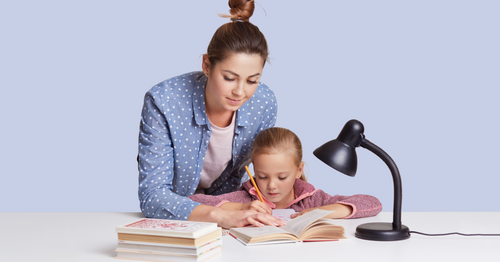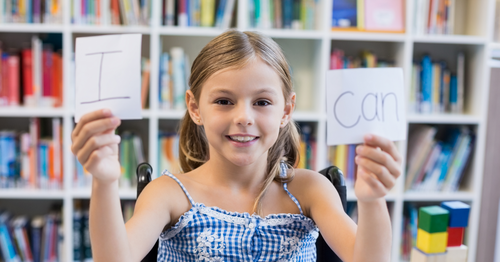Como regla general, un alumno de tercer grado es más consciente del proceso educativo. En este curso el niño intenta actuar de acuerdo con el modelo en todo, verifica constantemente la plantilla. Durante este período, el programa de inglés se vuelve significativamente más complicado. Veamos lo que un niño debe saber y poder hacer al final del tercer año.
1. Destrezas y habilidades
– Conocer el alfabeto, deletrear palabras (ortografía).
– Escribir palabras de temas de conversación estudiados.
– Redactar sus propias oraciones simples basadas en una muestra, complementar las oraciones con las palabras necesarias.
– Leer textos breves, constituidos por frases sencillas, tras escucharlos en la grabación.
– Mantener una conversación corta, reconocer el discurso del interlocutor y reaccionar ante él.
– Comprender de oído y leyendo el contenido general de los cuentos.
– Participar en diálogos sencillos: ser capaz de saludar y despedirse, disculparse, agradecer, felicitar y responder felicitaciones.
– Interrogar al interlocutor mediante las preguntas “¿Quién?”, “¿Qué?”, “¿Dónde?”, “¿Cuándo?”, “¿De quién?”. El volumen del diálogo es de 2-3 comentarios de cada lado.
– Redactar una historia corta sobre sí mismo, un amigo, la familia, el hogar o un animal, según el modelo de 6-7 frases.
2. Gramática
Recuerde que a una edad temprana, la gramática se da sólo en forma de frases prefabricadas. Sin embargo, se presta más atención a la gramática en tercer grado que en segundo grado. Y también se introducen los primeros ejercicios de gramática. Esto es lo que debe saber el niño de esta sección:
Tiempos gramaticales: Presente simple, Presente continuo.
Las preguntas son generales y con palabras interrogativas: qué, quién, dónde, cómo.
Frases incentivadoras en forma afirmativa: Help me, please.
El verbo tiene frases afirmativas, negativas e interrogativas.
El verbo estar en oraciones afirmativas, negativas e interrogativas
El verbo modal can.
El artículo indefinido “a” y el artículo definido “the”.
El plural de un sustantivo.
Pronombres personales: I, we, you, they, he, she, it.
Pronombres demostrativos this, that, these, those.
Preposiciones de lugar: on, in, under, next to (at), in front of, behind, between.
3. Palabras y frases básicas
Un alumno de tercer grado debe repasar el vocabulario que aprendió el año pasado y aprender gradualmente nuevas palabras y expresiones:
Números del 10 al 100
Familia
Who is this? This is my grandmother/grandfather/grandson/granddaughter/grandparents/aunt/uncle/cousin.
His (mother) is tall/short/strong/happy/kind/old/young/beautiful.
Her (aunt) lives in America.
Escuela
How many pens are there? – There are 15 pens.
What is your favourite subject? – My favourite subject is Maths/ English/ Reading/ History/ Geography/ PE/ Science/ Art/ Music/ Handicraft / Nature Study / Computer Study.
What lessons do you have on (Monday)? – On (Monday) we have (Art and Maths).
There is a library / a gym / a canteen / a playground in our school.
Schoolchildren wear a school uniform.
Mi casa
What’s this? – It’s a computer / cupboard / fridge / mirror / shelf.
Whose is it? – It’s dad’s.
What are these? – They are (cars).
Whose are they? – They are Bob’s.
Where is (the chair)? – It’s on / in / under / next to (the table).
Is (Bella) in the (kitchen)? – No, she is in the living-room / hall / bathroom / bedroom.
There is (a cup) on the (table). There are (plates) in the (cupboard).
Juguetes
Whose is this (musical box)? — It’s Mary’s. It’s her (musical box).
Where is our (ball)? – It’s under / on / in / next to the (table).
This (car) is fast / slow / new / old / beautiful.
Entretenimiento y pasatiempos
I can ride a bike / fly a kite / play the piano / play the guitar.
What are you doing? – I am listening to music / making a sandcastle / watching TV / painting a picture.
Is he riding a bike? – Yes, he is / No, he isn’t.
Do you like (playing football)? – Yes, I do /No, I don’t.
Does he like (watching TV)? – Yes, he does. No, he doesn’t.
Mi día
What time do you (get up)? – I (get up) at 7 o’clock.
In the morning I get up / wash my face / clean my teeth / have breakfast / go to school.
In the afternoon I have lunch / do my homework / play with my friends.
In the evening I watch TV / read books / play computer games.
At night I go to bed.
What do you do on Monday / Tuesday / Wednesday / Friday / Saturday / Sunday?
On (Sunday) I play football and visit my grandma.
Animales
This is a cow / sheep / horse / spider / lizard.
It has got (long) legs and a (big) mouth.
It can fly / crawl / climb / swim / talk.
It is funny / fluffy / clever / cute.
Comida
What’s your favourite food? – My favourite food is fruit/vegetables/water/lemonade.
I like (apples).
I don’t like (ice-cream).
Do you like (pizza)? – Yes, I do./No, I don’t.
Does he like (jelly)? – Yes, he does./No, he doesn’t.
Can I have the menu, please? – Here you are.
Can I have some (rice with vegetables), please? – Here you are.
Consejos para los padres: Escuchen atentamente las historias del niño sobre las clases de inglés. Es importante comprender si al niño le gusta el maestro y la asignatura en sí. Que las clases de inglés sean de sus favoritas en la escuela primaria son la clave para el buen desarrollo en un idioma extranjero en el futuro.
Si todo es difícil y aburrido en la escuela, busca un profesor que te lo ponga fácil e interesante.
Los profesores de AllRight siempre saben lo que le apasiona a su pequeño alumno y adaptan la lección a sus intereses tanto como sea posible. Es por eso que nuestros estudiantes de tercer grado adoran nuestras lecciones de inglés









